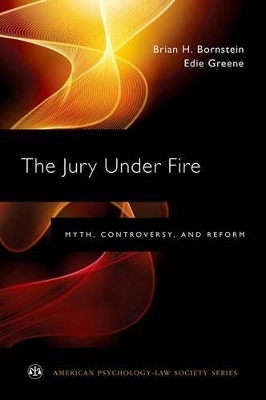
The Jury Under Fire
Oxford University Press Inc (Verlag)
978-0-19-020134-0 (ISBN)
Although the jury is often referred to as one of the bulwarks of the American justice system, it regularly comes under attack. Recent changes to trial procedures, such as reducing jury size, allowing non-unanimous verdicts, and rewriting jury instructions in plain English, were designed to promote greater efficiency and adherence to the law. Other changes, such as capping damages and replacing jurors with judges as arbiters in complex trials, seem designed to restrict the role of laypeople in trial outcomes. Whether these innovations are implemented to facilitate the administration of justice or due to the belief that juries have excessive power and make irrational decisions, they raise a host of questions about their effects on juries' judgments and about justice. Policymakers sometimes make incorrect assumptions about jury behavior, with the result that some reform efforts have had surprising and unintended consequences.
The Jury Under Fire reviews a number of controversial beliefs about juries as well as the implications of these views for jury reform. It reviews up-to-date research on both criminal and civil juries that uses a variety of research methodologies: simulations, archival analyses, field studies, and juror interviews. Each chapter focuses on a mistaken assumption or myth about jurors or juries, critiques these myths, and then uses social science research findings to suggest appropriate reforms. Chapters discuss the experience of serving as a juror; jury selection and jury size; and the impact of evidence from eyewitnesses, experts, confessions, and juvenile offenders. The book also covers the process of deciding damages and punishment and the role of emotions in jurors' decision making, and it compares jurors' and judges' decisions. Finally, it reviews a broad range of efforts to reform the jury, including the most promising reforms that have a solid backing in research. Featuring highly visible trials to illustrate key points, The Jury Under Fire will interest researchers in psychology and the law, practicing attorneys, and policymakers, as well as students and trainees in these areas.
Brian H. Bornstein, PhD, is Professor of Psychology and Courtesy Professor of Law at the University of Nebraska-Lincoln, where he serves as Director of the country's oldest Law and Psychology Program. His research interests include jury decision making, the reliability of eyewitness memory, and the application of decision-making principles to everyday judgment tasks. Edie Greene, PhD, is Professor of Psychology, Director of Psychological Sciences Training, and Director of the Graduate Sub-Plan in Psychology and Law at the University of Colorado Colorado Springs. Her research focuses on legal decision making, beliefs about the causes and consequences of crime, eyewitness memory, and psychological issues in elder law.
Series Foreword
Acknowledgments
Chapter 1. Introduction
Chapter 2. Avoid Jury Duty at All Costs
Chapter 3. Jury Selection Can Effectively Identify Biased Jurors
Chapter 4. 6 = 12 and They Don't All Have to Agree
Chapter 5. Jurors Can Distinguish Accurate from Inaccurate Eyewitnesses
Chapter 6. Jurors Can Distinguish True from False Confessions
Chapter 7. Jurors Overvalue Expert Testimony
Chapter 8. Jurors Treat Juvenile Defendants Fairly
Chapter 9. Compensatory Damage Awards Are Excessive and Unpredictable
Chapter 10. Punitive Damage Awards Are Excessive and Unpredictable
Chapter 11. Jurors in Criminal Cases Can Fairly Punish Wrongdoers
Chapter 12. Jurors Can Control Their Emotions
Chapter 13. Just Let the Judge Do It
Chapter 14. Jurors Don't Need Any Special Help
Chapter 15. Conclusion
References
About the Authors
Index
| Erscheinungsdatum | 11.02.2017 |
|---|---|
| Reihe/Serie | American Psychology-Law Society Series |
| Verlagsort | New York |
| Sprache | englisch |
| Maße | 155 x 234 mm |
| Gewicht | 590 g |
| Themenwelt | Geisteswissenschaften ► Psychologie ► Sozialpsychologie |
| Recht / Steuern ► Allgemeines / Lexika | |
| Recht / Steuern ► EU / Internationales Recht | |
| Recht / Steuern ► Privatrecht / Bürgerliches Recht ► Zivilverfahrensrecht | |
| ISBN-10 | 0-19-020134-7 / 0190201347 |
| ISBN-13 | 978-0-19-020134-0 / 9780190201340 |
| Zustand | Neuware |
| Informationen gemäß Produktsicherheitsverordnung (GPSR) | |
| Haben Sie eine Frage zum Produkt? |
aus dem Bereich


